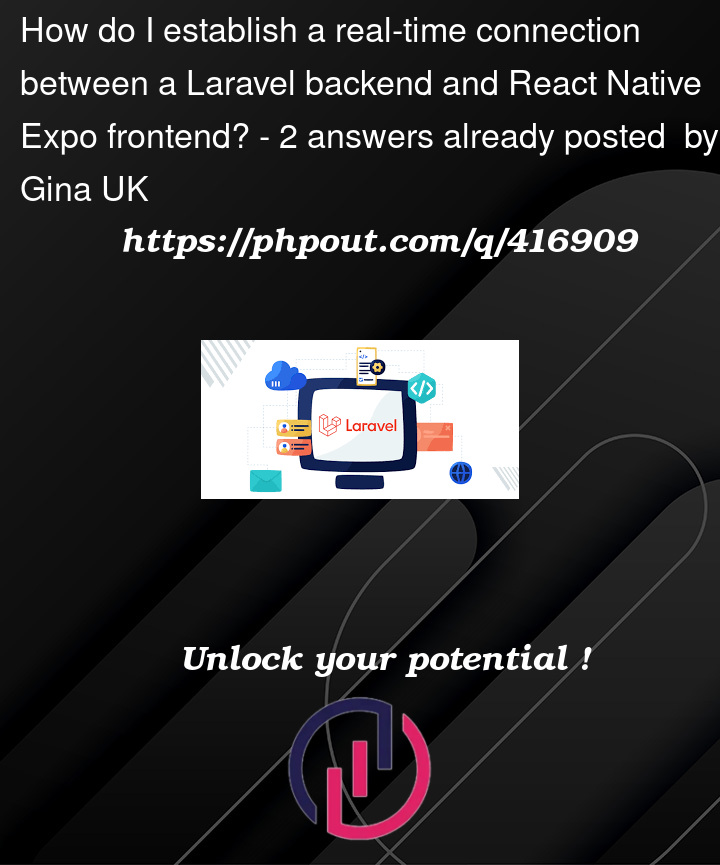I’m working a Laravel and React Native project where real-time communication is crucial. In scenario where a user updates their profile other users should get the update in real time. And a chatting functionality to be integrated as well.
Currently, I’m using Laravel & Reverb on the backend. I installed socket.io-client on the RN Expo app but the connection is never established.
Don’t know why that is though. I need help on how to integrate this correctly.




2
Answers
I ran into this exact same issue a few months ago. The problem is that you’re trying to use socket.io-client with Laravel Reverb, which won’t work out of the box since they use different protocols.
Here’s how I got it working:
Instead of socket.io-client, you’ll want to use laravel-echo with pusher-js. First, install these packages:
Then set up your Echo configuration in your RN app like this:
For the profile updates, create an event in Laravel:
Then listen for it in your React Native component:
For the chat functionality, it’s pretty similar. Just make sure you’re using private channels if the chat needs to be secure:
Quick debugging tips:
php artisan reverb:start)First, let’s do a complete setup check:
Common issues and solutions:
Share any error message after trying this.